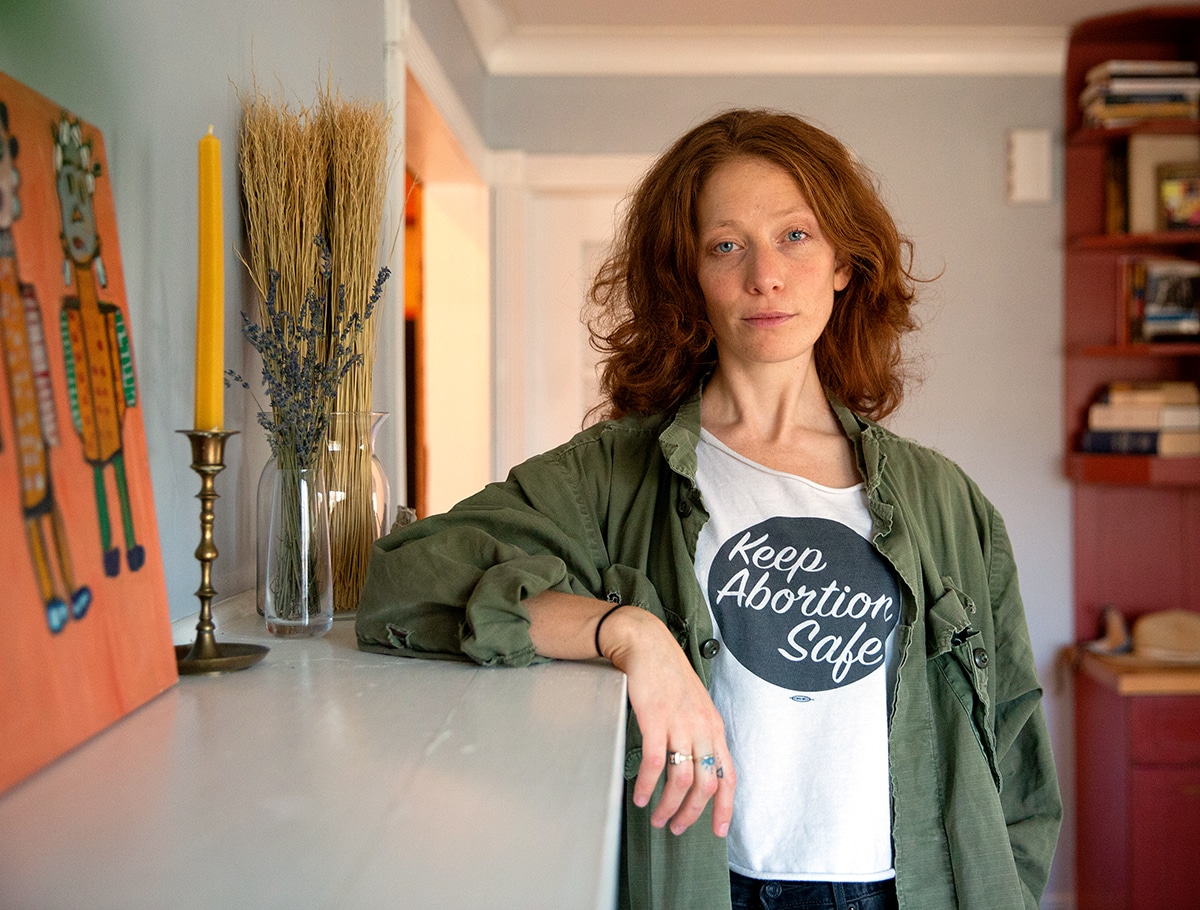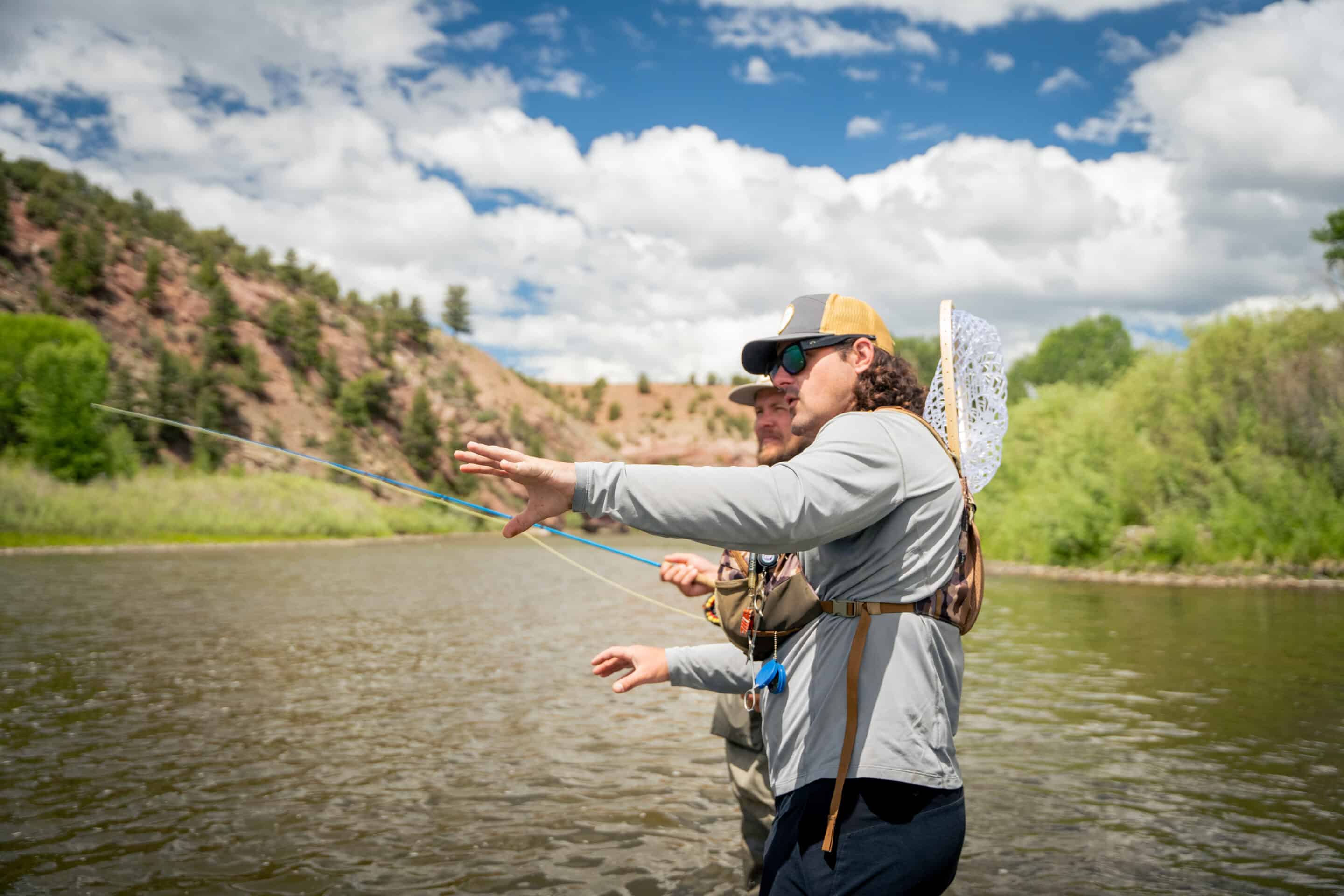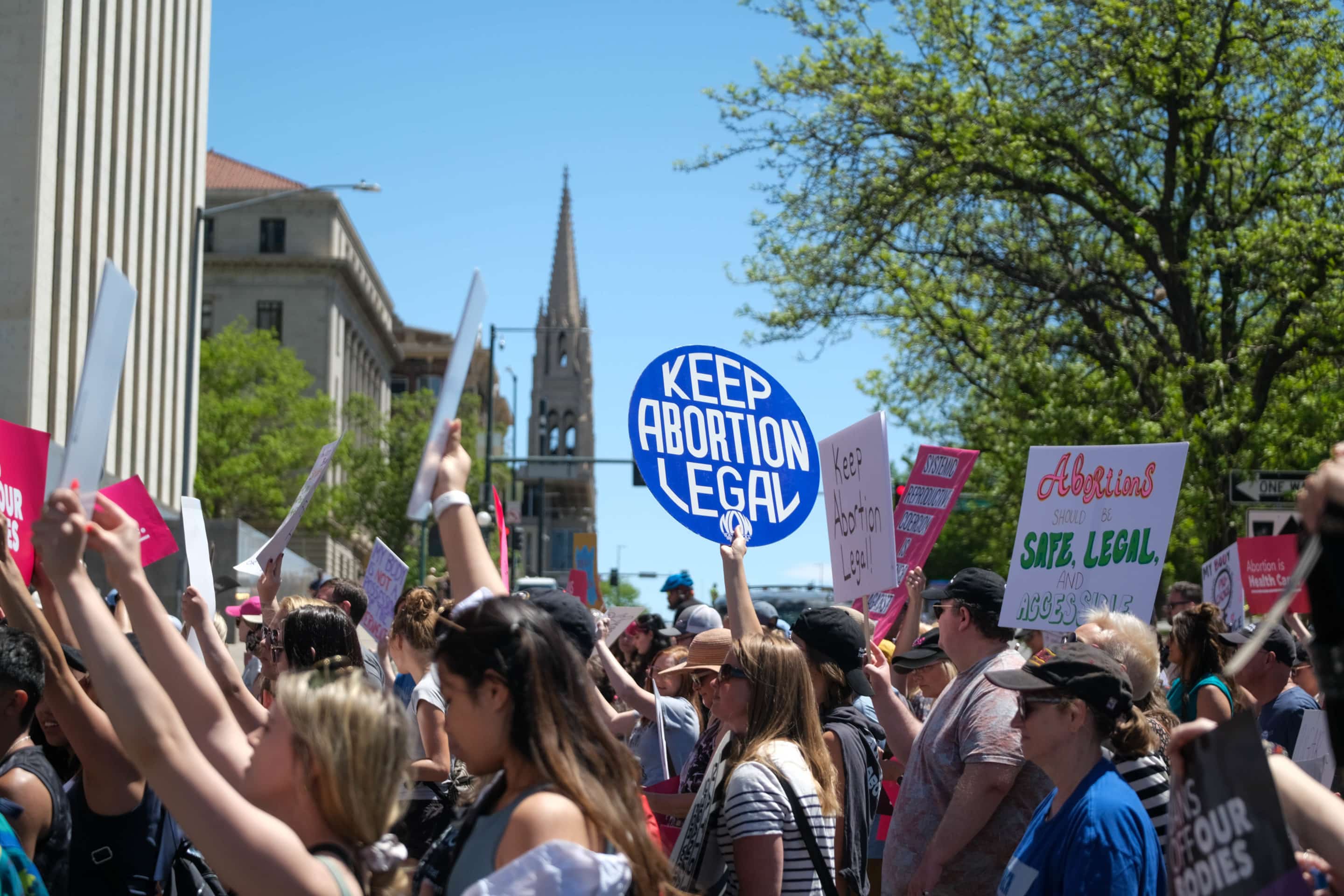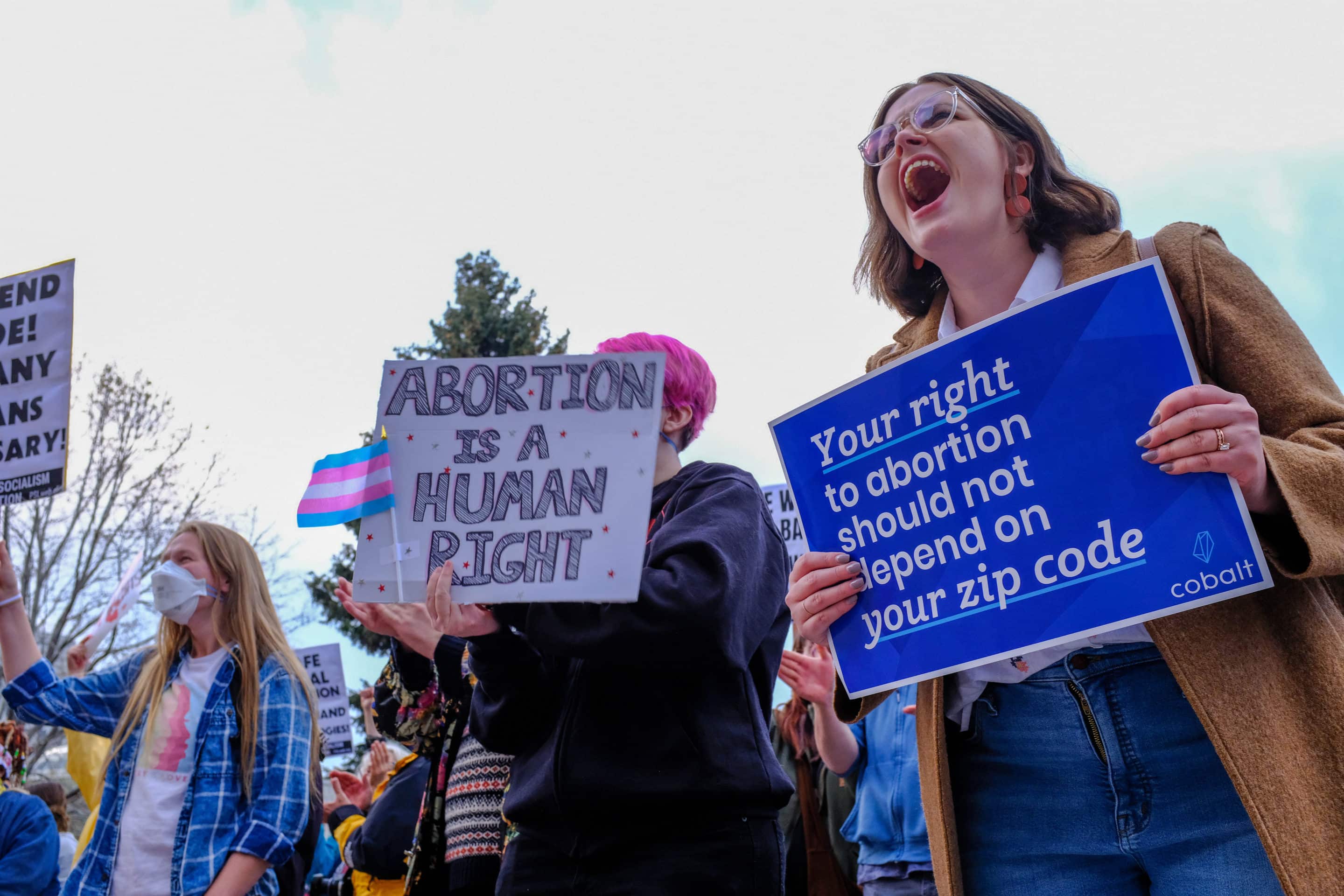//Lorenne Gavish, program manager at Keep Abortion Safe, at her house in west Denver on Dec. 2. Photo by Polina Saran | [email protected]
Editor’s note: This story has been updated to reflect Lorenne Gavish’s change in title at Keep Abortion Safe. As of Dec. 6, she is now deputy director.
Nearly 50 years after Roe v. Wade, activists are still battling the stigma surrounding reproductive healthcare and abortion rights. But it bears the question, is there a “stigma” surrounding the topic to begin with?
“The anti-abortion movement has, for so long, steered the narrative,” said Lorenne Gavish, deputy director of the Denver-based project Keep Abortion Safe. “The majority of people in the United States support abortion. And not only that but support for abortion—in any and all cases—is at an all-time high right now. They’ve created this facade, where abortion is a hot topic, where it is highly political, where it’s a moral issue, and that’s actually patently false. The reality is that abortion is widely understood.”
Keep Abortion Safe is a project of Progress Now Colorado, a 501(c) nonprofit created by Fawn Bolak and Alex Ferencz in January of 2018. The project aims to create a bolder, in-your-face feminist voice representing abortion rights and the will of so many in Colorado. KAS centers on digital storytelling, disruptive content and bold action to facilitate conversations and build power around the abortion rights movement.
With the onslaught of the COVID-19 pandemic, the digital space is more crucial than ever for advocacy. While in-person events are slowly making their resurgence, Gavish noted that activists must continue to create these same spaces in the digital realm, which she believes has always allowed people to expand and inquire upon their biases.
And doing the work at this time in American history is especially relevant. On Dec. 1, the U.S. Supreme Court heard arguments concerning the Mississippi law that bans abortions at 15 weeks. The case is largely considered to be the most important abortion case in decades as it would redefine reproductive rights across the country. Experts and abortion advocates say the passing of Senate Bill-8 in Texas in September could be an indication of what’s to come in other parts of the country should Mississippi prevail. The bill bans abortions following the sixth week of pregnancy—the vast majority of abortions in the state—and allows private citizens to sue Texas residents for a $10,000 bounty if they are found to have helped to procure an abortion after six weeks.
This is all part of a “very long-term playbook by the anti-abortion movement,” Gavish said, with the anti-abortion movement “throwing anything they fucking can against the wall to see what sticks.” This is what stuck, and if it wasn’t Texas, it would be another state she said.
SB-8 is affecting abortion access and reproductive healthcare in the Centennial State, too.
“Clinics in Colorado are already seeing a 500% increase in people coming from Texas,” Gavish said. “One-third of people seeking support from the Colorado abortion fund Cobalt Advocates are people from Texas. What happens is, we are less able to serve people in our own state, so we then have this huge pressure and constraint on our care system and capacity.”
Not only that, but Gavish called the current landscape around abortion the “fucking Wild West,” in that the language in SB-8 is intentionally vague. Healthcare professionals regularly speak with lawyers, who often relay there aren’t finite answers and won’t be until the bill is tested in courts.
Gavish put forth Southern Colorado’s abortion care and its strain on resources as an example, which is forcing folks out of their own communities and into the rest of Colorado.
“I try to align it with the crisis we see in COVID,” she said. “One of the issues is hospital capacity, right? People who are dealing with cancer treatments, or elective surgeries, or preventative treatments, or preventative surgeries, are now having to have their care put off and endangering themselves because of the capacity due to COVID. Our hospitals are so tight. That’s the exact same thing that’s happening with our [abortion] providers in Colorado. These people are already working overtime; these people are already being pushed to their limits, and this is only one state.”
And the strain on resources ultimately doesn’t impact white, wealthy people with uteruses on the same level as individuals who are lower-income, often BIPOC and LGBTQ+, Gavish said. Should the strain persist, these more vulnerable populations will continue to suffer the most.
Many play incorrectly into the idea that abortion rights need to be a difficult topic. Because of the anti-abortion movement’s strategies around messaging and political framing, folks often believe the topic is highly stigmatized, Gavish said. Instead, KAS looks at the topic as the “beautiful, affirming thing that it is,” while working to remove the shame and trauma around it, she said.
The brazen statements of KAS are intentional, inviting folks to digest messages that they’ve never considered before or might even have biases around.
“One that comes to mind immediately is, we posted something that said, ‘There’s no such thing as too many abortions.’” Gavish said. “And, of course, the knee-jerk reaction is that people associate it with violence, essentially, when the truth is, it is violent to say that, ‘I’m OK with one abortion, but more than that makes you a slut, makes you irresponsible.’”
Gavish was self-referential when touching on intersectionality, “I’m a white, [cisgender] chick, right? There’s so many of us who get funneled into these positions of power, positions where we get to share our voices,” noting that, for them, the heroes of the pro-abortion movement are BIPOC, queer sex workers. While activists eagerly scream about abortion rights, many conversations in Gavish’s experience don’t involve sex workers, or the intersections around LGBTQ+ rights. The conversations also often exclude the experience of a low-resourced, poor person seeking abortion care, “because it’s uncomfortable.”
Gavish noted there’s always more that can be done, even in her own organization.
“I struggle with the ways that the pro-abortion movement, the communities that we’re able to reach into, and the brilliant activists and advocates who exist in these communities—whose incredibly important understanding and spheres of influence—are not being placed at the tables where they really belong and are not being given the power that they really should be given.”
KAS is not a direct service organization, and she said that can sometimes feel challenging, promoting “cute copy” and feeling as if it’s not making quite the impact it should.
With so much on the line, the road forward is intimidating, including the future of Roe v. Wade.
“All you can think about are the people who won’t be able to access abortion and who are going to be forced to remain pregnant,” Gavish said. “The idea of being forced to remain pregnant against my will, that is a—bodily jailing, and it’s terrifying.”
Moving forward, she encourages folks to continue donating to Texas abortion providers, funds and practical support, like TX Fund Donations and Cobalt Advocates. In the context of the work by KAS, Gavish asserted that the Supreme Court is still a group of people who consume media, and calling them out puts continuous pressure to encourage progressive change combatting the anti-abortion narrative.
“The more that we are making a physical and digital show, for our huge majority support and support for abortion rights, it matters and it makes a difference,” she said.
For more on Keep Abortion Safe, check outtheir website, stay up-to-date with their Rage Report and find them on Instagram.





0 Comments